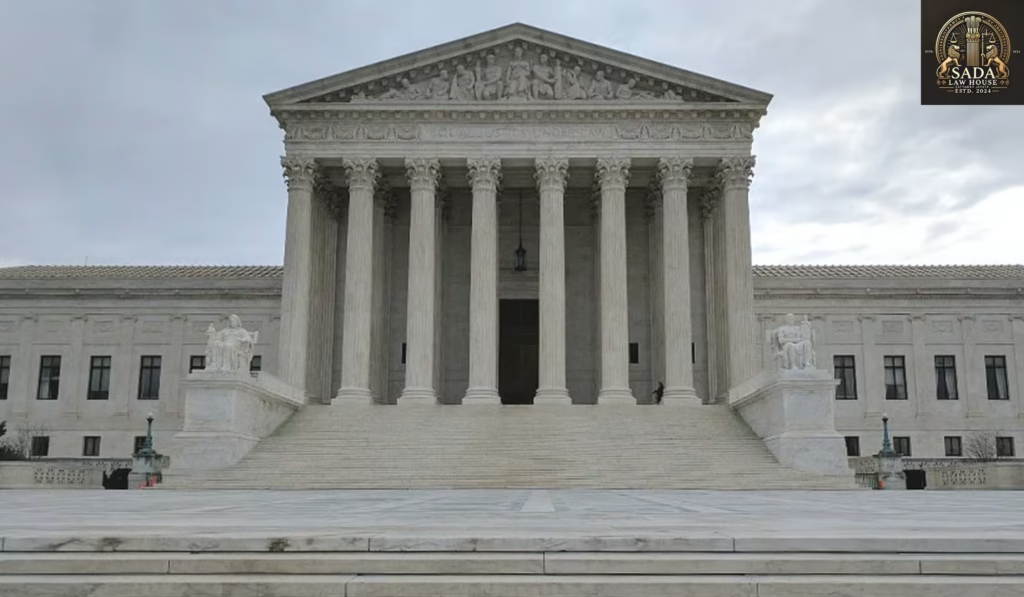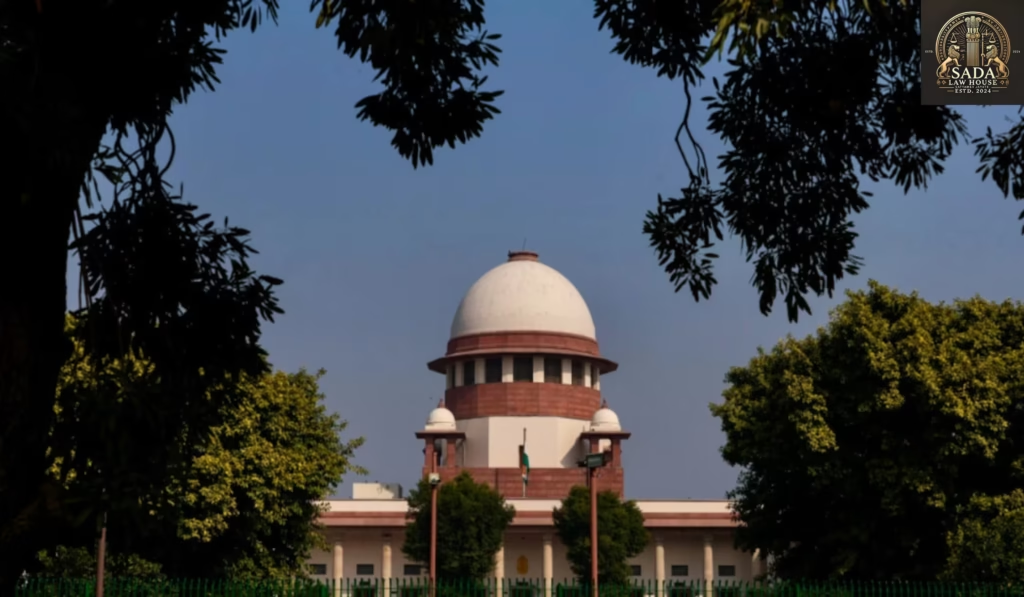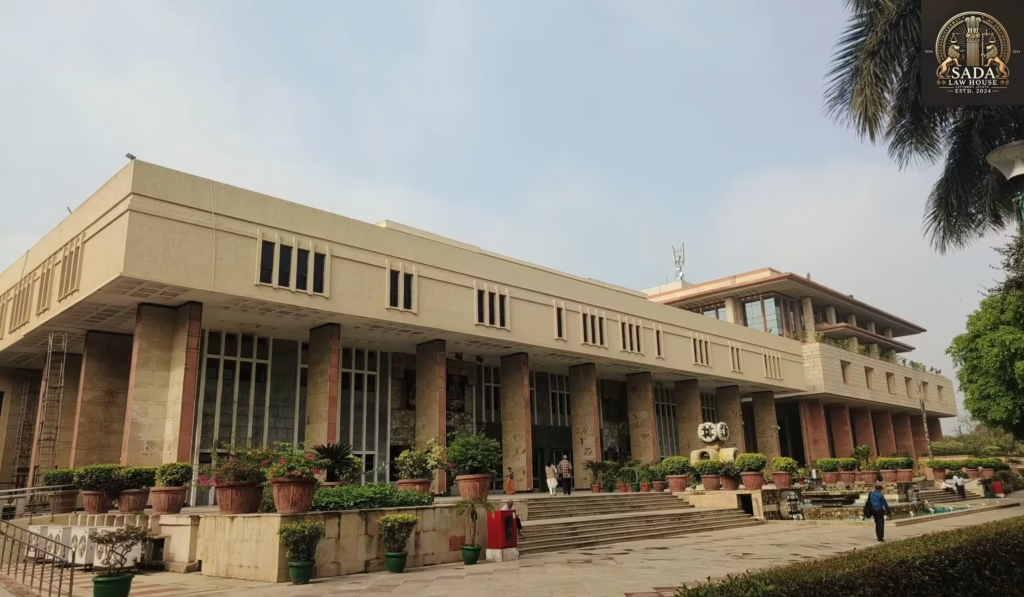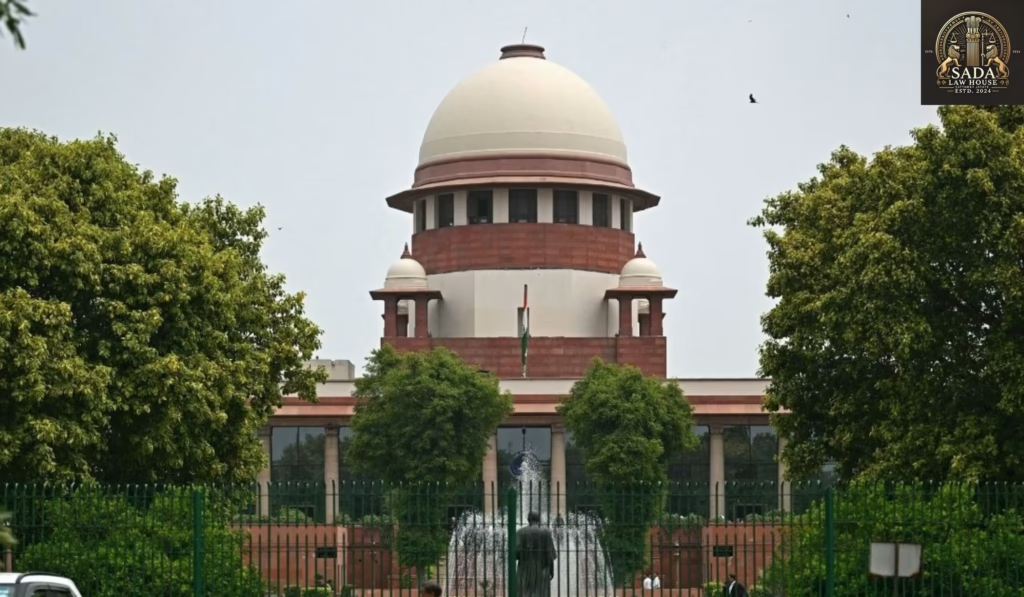NHAI Challenges Madras High Court’s Toll Ban on Madurai-Tuticorin Highway in Supreme Court
Trending Today NHAI Challenges Madras High Court’s Toll Ban on Madurai-Tuticorin Highway in Supreme Court Supreme Court Slams Misuse of Preventive Detention After Bail Grant in Kerala Case Supreme Court Directs Streamlined Implementation of RTI Act for Easier Access to Information Remission Shouldn’t Be Denied Solely on Reports of Presiding Judge or Police: Supreme Court Lays Down Factors for Premature Release Supreme Court Issues 12 Key Directions for Speedy Trial of Civil Cases ED Cannot Invoke PMLA Without Scheduled Offence: Supreme Court in Pavana Dibbur Case Maternity Benefits Must Extend Beyond Contract Period: Supreme Court Landmark Ruling Secunderabad Club v. Commissioner of Income Tax-V (2023): Supreme Court Rules Interest Income on Bank Deposits Taxable Devesh Sharma v. Union of India (2023): Supreme Court Rules B.Ed. Holders Ineligible for Primary Teaching Posts Salib v. State of Uttar Pradesh (2023): Supreme Court Denies Plea to Quash Criminal Intimidation FIR NHAI Challenges Madras High Court’s Toll Ban on Madurai-Tuticorin Highway in Supreme Court Prabhat Kumar biltoria 09 June 2025 The National Highways Authority of India (NHAI) has filed a Special Leave Petition in the Supreme Court of India, challenging the Madras High Court‘s decision to halt toll collection on the Madurai-Tuticorin Highway due to poor maintenance. Overview: NHAI Challenges High Court Toll Ban The National Highways Authority of India (NHAI) has approached the Supreme Court of India to contest a recent ruling by the Madras High Court that suspended toll collection on the Madurai–Tuticorin Highway due to poor road conditions. Why Was Toll Collection Stopped? On June 3, 2025, Justices SM Subramaniam and AD Maria Clete of the Madras High Court ruled that NHAI must halt toll collection until the road was properly resurfaced and maintained. The court emphasized that toll collection is only valid when highways are well maintained under the National Highways Authority of India Act. “Road users are entitled to well-maintained national highways. Toll fees can only be collected after this condition is fulfilled.” NHAI’s Response: Petition to Supreme Court On June 6, NHAI filed a Special Leave Petition (SLP) for an urgent hearing in the Supreme Court of India. The petition was placed before a bench comprising Justice Sanjay Karol and Justice Satish Chandra Sharma, who scheduled the case for hearing on June 9. It will now be reviewed by Justice Prashant Kumar Mishra and Justice Manmohan. Key Issues at Stake Highway Maintenance: Should tolls be collected if roads are not up to standard? User Rights: Can road users refuse to pay for poorly maintained highways? Legal Obligations of NHAI: What maintenance standards must be met before collecting tolls? What This Means for Road Users This ruling is significant for users of the Madurai–Tuticorin route and may influence future toll collection practices on Indian highways. The case could set a legal precedent for enforcing road maintenance as a condition for collecting user fees. Conclusion: Awaiting Supreme Court Verdict As the Supreme Court prepares to hear the case, the outcome could reshape toll collection policies across India. For now, toll charges on the Madurai–Tuticorin National Highway remain suspended pending a legal resolution. Leave a Reply Cancel Reply Logged in as Sada Law. Edit your profile. Log out? Required fields are marked * Message* Case Laws Supreme Court Directs Streamlined Implementation of RTI Act for Easier Access to Information Supreme Court Directs Streamlined Implementation of RTI Act for Easier Access to Information Sadalaw • June 8, 2025 • Case law • No Comments Remission Shouldn’t Be Denied Solely on Reports of Presiding Judge or Police: Supreme Court Lays Down Factors for Premature Release Remission Shouldn’t Be Denied Solely on Reports of Presiding Judge or Police: Supreme Court Lays Down Factors for Premature Release Sadalaw • June 8, 2025 • Case law • No Comments Supreme Court Issues 12 Key Directions for Speedy Trial of Civil Cases Supreme Court Issues 12 Key Directions for Speedy Trial of Civil Cases Sadalaw • June 8, 2025 • Case law • No Comments 1 2 3 … 5 Next »










